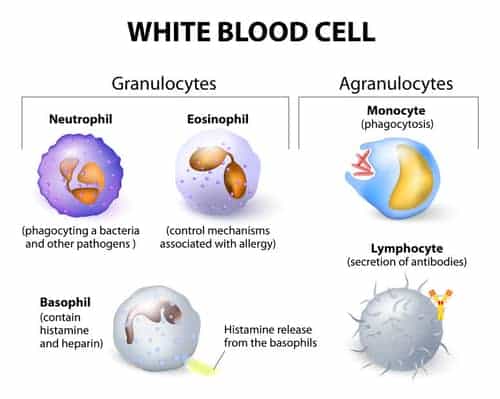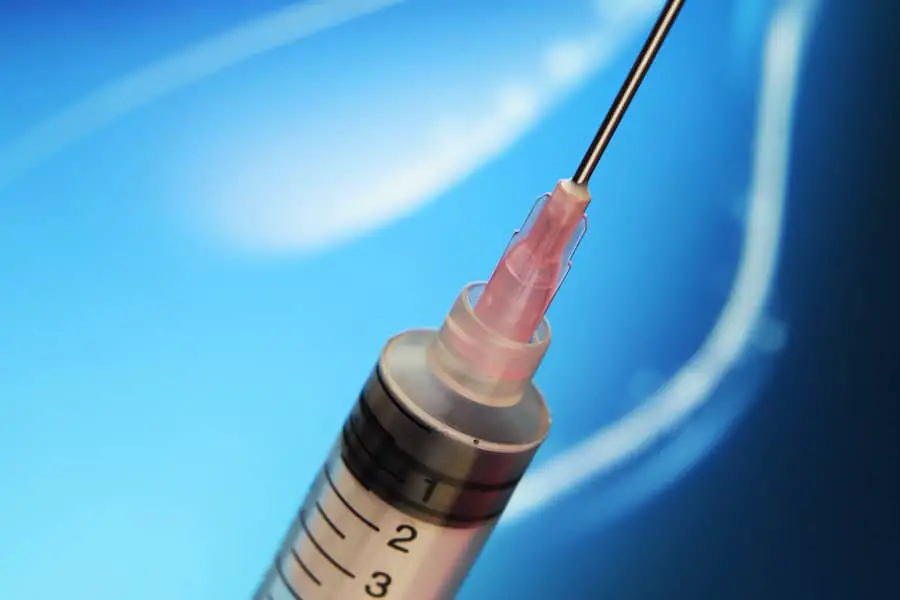Or specifically, can a vegan diet cause a low platelet count? I think this question arises due to the complete omission of foods like meat and fish which contain various nutrients having implications for ones hematological profile (i.e. full blood count). Specifically, vitamins B12, and iron.1
In short, does the vegan diet cause low platelet counts? The full relationship between the vegan diet and platelet status is yet to be elucidated. The data is quite mixed, with one study conducted in 1999 actually finding that vegetarians had significantly higher platelet counts along with shorter bleeding times than compared with nonvegetarians.2
And, of course, there were studies that showed the opposite.
There are a couple of mechanisms by which a poorly planned vegan diet could potentially lead to low platelet levels, which I will outline below.
I do so in hopes that any vegans, or those considering adopting the vegan diet, will come to appreciate the roles of specific nutrients that must be regulated (in terms of intake) in order to execute the diet successfully.
Nutrition information can be pretty abstract, so I hope to make the arbitrary seem less arbitrary.
What is a Low Platelet Count?
Our blood is made up of various types of cells that exist in liquid plasma. The types of blood cells are as follows:
- Red blood cells (RBCs)
- White blood cells (WBCs)
- Platelets, or thrombocytes
There are a few types of WBCs

When your skin becomes damaged by a cut or scrape it’s the platelets that clump together forming clots that will durably plug the opening until healing can occur.
This process is known as hemostasis. Absent sufficient platelets in your blood, your body wouldn’t be able to form clots.
Platelets are formed in the bone marrow from specialized cells called megakaryocytes. They are small, non-nucleated cells with the primary role of maintaining vascular integrity. Most of the platelets (about 75%) exist in the bloodstream, but a smaller percentage exists in the liver and spleen.
When your platelets run low past a certain threshold, it is known as thrombocytopenia, a condition that ranges from mild to severe depending on its underlying cause.
Thrombocytopenia
Counts of anywhere between 150,000 are 400,000/mm3 are generally considered normal, while counts of less than 100,000/mm3 are typically considered indicative thrombocytopenia.
Because platelets are needed to stop the bleeding process, this condition can often result in spontaneous hemorrhage, and the risk of this happening is serious when platelet counts fall below 20,000/mm3.3
Though irrelevant for the purposes here, petechiae–a condition associated with vitamin C deficiency–occurs at this degree of thrombocytopenia.4
Now, while it’s less likely a person would experience spontaneous bleeding with counts over 40,000/mm3, events such as trauma and surgery can result in prolonged bleeding around this level.5
But these are rather severe cases. As you’ll see, nutritional problems (namely deficiencies) cause gradual problems over time unlike that of acute injury and trauma.
General Reasons for a Low Blood Count
Among the various causes of thrombocytopenia are the following:5,6
- Reduced Platelet Production. Usually due to bone marrow failure, tumors, etc.).
- Hypersplenism. A condition known as hypersplenism can cause your platelets to be sequestered. While a well-functioning spleen normally extracts old platelets from the bloodstream, whereas an enlarged spleen, extracts more platelets, both old and new. Thus, the platelet count diminishes.
- Platelet Destruction. Infections, antibodies, and certain drugs (among other things) can cause accelerated destruction of platelets. Also in this category is immune thrombocytopenia. This includes idiopathic thrombocytopenia (i.e. no one knows the reason), and drug-induced thrombocytopenia, among others. Basically, antibodies are directed against antigens on the membrane of the platelet cell destroying the platelets, thus lowering the count.
- Platelet Loss From Hemorrhage. When platelets are lost due to excessive bleeding, it takes hours if not days for the bone marrow to produce an adequate number of replacements–absent a transfusion of course.
- Leukemia and Other Disorders. Bone marrow cells (cells that produce platelets) decrease in number and functionality, thus platelet numbers drop. There are other factors and conditions that can lead to low platelet levels, but hopefully, that gives you a good idea of some of the general reasons platelet numbers can be low. So, on to nutrition.
Nutrition-Related Causes of Low Blood Count
It really only comes down to two nutrient deficiencies that are implicated in the condition. Both of which are completely avoidable on a well-designed vegan diet.
Pernicious Anemia
Pernicious anemia, also known as Addison’s Disease is a decrease in red blood cells (RBCs) when the body isn’t able to absorb enough vitamin B-12. Unlike iron that’s used in red blood cell synthesis, vitamin B12, as well as folate, are needed for platelet production.
A deficiency of either will diminish the production of platelets. So, while it’s defined as a decrease in RBCs, another complication of pernicious anemia is that platelet count drops.7
As mentioned above, nutritional deficiencies cause problems to develop gradually. The word pernicious means to have a harmful effect, especially in a subtle or gradual way.
Anyone who fails to consume adequate B12, as well as those who have problems absorbing it can eventually develop an unfavorable hematological profile. But this process takes place over a long period of time.
Some Hemolytic Anemias
Hemolytic anemias are the forms of anemia in which RBCs are destroyed faster than they can be made. Often the same disease processes that result in hemolysis also destroy platelets. Thus, the platelet count falls.7
How As a Vegan You can Avoid B12 and Folate Deficiencies
Folate
Aside from supplementation, you can also find folate in many plant sources. A few sources include:8
- Legumes
- Citrus fruits
- Asparagus
- Leafy Greens
- Beets
- Broccoli
- Brussels Sprouts
Vitamin B12
Nutritional Yeast (Fortified)9
Nutritional yeast is a good vegan source of vitamin B12 as well as protein, and other micronutrients. In only two tablespoons it contains over 100% of the B12 RDI.
It’s a specific species of yeast that’s usually grown to be used as food, as opposed to a leavening agent in bread and beer.
Vitamin B12 is actually not naturally present in nutritional yeast, hence the fortification. Like fortified cereals, the vitamin B12 in nutritional yeast is vegan-approved because it’s synthetically made.
Supplementation
This one’s the most convenient. Just make sure you research the supplement company because the quality of over the counter supplements can vary quite significantly.
References
- Dagnelie PC. Nutrition and health – potential health benefits and risks of vegetarianism and limited consumption of meat in the Netherlands. Ned Tijdschr Geneeskd 2003; 147: 1308–13
- D. Mezzano, X. Munoz, C. Martinez, et al., “Vegetarians and Cardiovascular
- Risk Factors: Hemostasis, Inflammatory Markers and Plasma Homocysteine,”
- Journal of Thrombosis and Haemostasis 81, no. 6 (1999): 913–17.
- Carranza’s Clinical Periodontology Michael Newman-Henry Takei-Perry Klokkevold-Fermin Carranza – Elsevier Saunders – 2012
- Magiorkinis E, Beloukas A, Diamantis A. Scurvy: past, present, and future. Eur. J. Intern. Med. 2011 Apr;22(2):147-52.
- Pagana, Kathleen Deska; Pagana, Timothy J.. Mosby’s Manual of Diagnostic and Laboratory Tests (p. 402). Elsevier Health Sciences.
- Pagana, Kathleen Deska; Pagana, Timothy J.. Mosby’s Manual of Diagnostic and Laboratory Tests (p. 403). Elsevier Health Sciences.
- Pagana, Kathleen Deska; Pagana, Timothy J.. Mosby’s Manual of Diagnostic and Laboratory Tests (p. 404). Elsevier Health Sciences.
- Office Of Dietary Supplements – Folate https://ods.od.nih.gov/factsheets/Folate-HealthProfessional/
- Office Of Dietary Supplements – Vitamin B12 https://ods.od.nih.gov/factsheets/VitaminB12-HealthProfessional/

